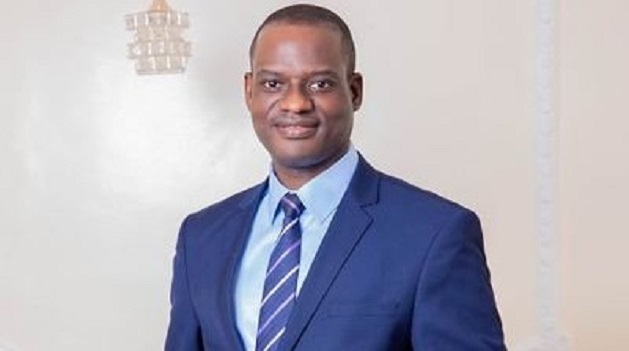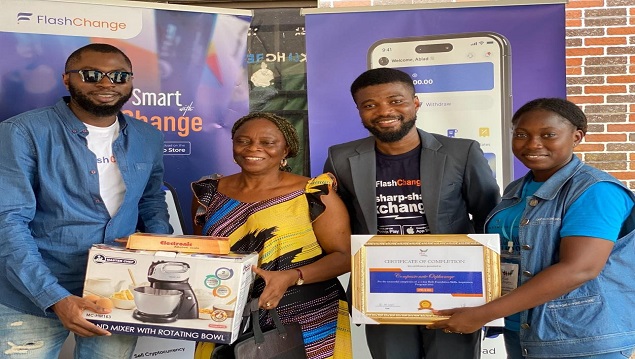General News
Nigerian Idol: 17 Contestants Advance to the Next Round of Theatre Week

After four weeks of auditions, Nigerian Idol theatre began with the 68 lucky contestants battling it out for a chance to become the next Nigerian Idol.

On Sunday night, the contestants were paired into groups to see who would showcase real talent and not just an audition wonder.
As expected, some of the contestants were outstanding and progressed into the next round, while it was the end of the road for others.
Unlike the auditions, the theatre week began with group selections. The group selections were much tougher, as contestants had to put in their very best to work with their teammates and still retain their star power.
The 68 Contestants were grouped according to their voices and trained to perform as a group for the judges. The group stage featured an amazing array of songs from Burna Boy’s Wonderful and Teni’s Billionaire, which got a standing ovation from judge Obi Asika.
In this round, the judges were not just assessing the voices of the contestants, they were also looking out for the ability to maintain composure on stage and teamwork.
Star, however, did not get the memo. She expressed her dislike for her teammates as soon as she was grouped. And when Comfort unfortunately forgot her lines on stage, she let it get to her and her performance was underwhelming. Luckily, the team had Agbutun to hold the bar, and he did a marvelous job.
While some let the pressure get to them and forgot their lines, others like Godwin recovered quickly and gave a beautiful performance. Some contestants were also victims of their teammates’ flaws and others were trying to outdo their teammates forgetting that teamwork was also being graded.
At the end of the day, out of the 68 contestants that made it into theatre week, and thirty-nine to the group selection, only seventeen contestants progressed to the next round.
Next week, all seventeen will battle it out to prove that they are worthy of being the next Nigerian Idol.
Nigerian Idol continues next week Sunday, May 2 on Africa Magic Showcase (DStv ch 151) and Africa Magic Urban (DStv ch 153) and Africa Magic Family (DStv ch 154 & GOtv ch 2) from 7 pm. Viewers can also catch a special 24-hour Nigerian Idol Extra content on DStv Channel 198 and GOtv Channel 29.
Nigerian Idol season 6 is sponsored by Bigi Drinks and Tecno Mobile. The show is available to customers on DStv Premium, Compact Plus, Compact, Confam, Yanga and GOtv Max and Jolli.
You can also watch Nigerian Idol Season 6 via the DStv app on multiple devices at no additional cost. The app is available for download on iOS and Android devices.
General News
MTN Go Make A Difference Campaign Heads to Kano, Celebrating Culture and Community Impact

MTN Nigeria is bringing its Go Make A Difference (Go M.A.D) campaign to Kano, the heartbeat of Northern Nigeria’s commerce, industry, and cultural heritage, on Friday, April 25, at Coolio Restaurant & Lounge.

This initiative is part of MTN’s continued mission to inspire Nigerians to take bold steps toward community development and digital empowerment.
Following exciting events in Abuja, Enugu, Calabar, Ibadan, Benin, Aba and Jos, the campaign now makes its way to Kano—a city renowned for its cultural pride and being the centre of commerce of northern Nigeria.
At the campaign launch, Onyinye Ikenna-Emeka, Chief Marketing Officer of MTN Nigeria, shared the vision behind Go M.A.D. “At MTN, we’re committed to progress—empowering Nigerians to rise above challenges and build something remarkable.
“Go M.A.D. is built on the idea that MTN data gives you the power to go further, dream bigger, and create real impact in your family, your business, and your community.
“This campaign is our way of saying: we see your hustle, we believe in your ideas, and we’re here to support your journey.”
In Kano, attendees will experience a unique blend of entertainment, Hausa culture, interactive games, and inspiring real-life stories with special guest appearances by notable celebrities.
The event will also feature Kahoot trivia games, a Go M.A.D puzzle, a pledge wall, and exciting giveaways of MTN-branded merchandise and digital devices.
The event aims to spotlight local entrepreneurs, artisans, creatives, and digital innovators from Kano who are making a real difference and standing out in their industries.
It will shine a light on individuals who are leveraging MTN’s digital tools to scale their businesses, refine their crafts, share bold ideas, and build sustainable careers in one of Nigeria’s most industrious cities.
Kano, with its deep-rooted legacy in trade, craftsmanship, and innovation, is an ideal host city for the Go M.A.D. campaign.
The event will honour other Go M.A.D. icons—local changemakers who are using technology, business acumen, and creativity to transform their communities and inspire others.
These icons reflect how digital access can break barriers and open up opportunities for growth and success.
The event will also celebrate Kano’s vibrant culture with traditional music performances, local fashion showcases and creative displays that highlight the city’s rich heritage. More than just a one-day experience, Go M.A.D. is a movement, one that encourages Kano’s youth to harness their talents, embrace digital innovation, and create real impact where it matters most.
With this activation, MTN reinforces its commitment to innovation, storytelling, and community-driven progress.
The Go M.A.D. campaign aims to build a generation of empowered Nigerians who are ready to make a difference, starting with their communities.
General News
FG to Introduce New Tax Credit Scheme to Replace Pioneer Status Incentive

As part of Nigeria’s ongoing tax reform efforts, the federal government is proposing a new investment-driven incentive framework aimed at addressing long-standing inefficiencies in the current Pioneer Status Incentive (PSI).

The new scheme, known as the Economic Development Incentive (EDI), is designed to stimulate real economic activity by tying tax relief directly to verifiable investments.
This was the focus of a keynote address delivered by Taiwo Oyedele, Chairman of the Presidential Committee on Fiscal Policy and Tax Reforms, at BusinessDay’s Policy Intervention Series held on April 22 in Lagos.
According to Oyedele, a close review of the Pioneer Status Incentive revealed structural flaws that have undermined its effectiveness. “Once granted Pioneer Status,” he said, “companies may import goods classified as ‘pioneer products’ tax-free, effectively allowing them to operate without tax obligations—even with minimal value addition to the economy.”
He further noted that while the PSI was initially designed to encourage investment, it created loopholes and ambiguities. For example, businesses often benefit from extended tax relief even after the designated holiday period ends.
“The assets used during the Pioneer period are essentially frozen in time,” Oyedele explained. “They’re treated as if acquired after the incentive ends—meaning companies only start claiming deductions once the holiday period is over. This creates long-term tax advantages that go well beyond the policy’s original intent.”
He also pointed out that the PSI makes it difficult for the government to quantify revenue forgone and for investors to clearly assess the value of the incentive—undermining transparency on both sides.
The Economic Development Incentive
The proposed Economic Development Incentive is a departure from the one-size-fits-all model. Instead, it’s structured around priority sectors—primarily manufacturing, followed by services and infrastructure—that have strong multiplier effects on the economy.
Another key design feature is the introduction of minimum investment thresholds to ensure only scalable and impactful projects qualify. For instance, companies operating in capital-intensive sectors like utilities would need to invest at least N200 billion to be eligible for the tax credit.
“The EDI is about real impact,” Oyedele said. “It’s time-bound, sector-targeted, and tied to actual capital deployment—not just approval on paper.”
Unlike blanket tax holidays, the EDI grants companies a 5 percent annual tax credit over five years—totaling 25 percent of the value of their qualifying investment. Importantly, this is in addition to existing capital allowances, making the scheme particularly attractive to long-term investors.
Crucially, approval under the scheme does not mean the investment has already been made. It only confirms that the company has a verified plan. The incentive kicks in only after capital is actually deployed, and all investments are subject to inspection by the Industrial Inspectorate Division.
Oyedele broke down how the system works using practical examples:
If a company invests N10 billion in Year 1, it earns a N500 million tax credit each year for five years. If an additional N5 billion is invested in Year 2, that new investment begins its own five-year 5 percent cycle—N250 million annually until Year 6.
If the company continues investing progressively, each round of investment starts a new five-year cycle of tax credits, potentially extending the benefit period up to 10 years.
For instance, if a business has a N15 million tax liability in a given year and applies N25 million in tax credits, its liability is wiped out entirely, with the N10 million balance rolled over to subsequent years.
However, there’s a catch: if a company fails to follow through on its investment plan or halts capital deployment, unused credits are forfeited. This accountability mechanism ensures that only consistent and credible investments are rewarded.
General News
FlashChange Partners Ruth Foundation to Empower Vulnerable Children in Alimosho with Skill Acquisition

In an inspiring initiative to uplift the next generation, FlashChange and Ruth Foundation have successfully implemented the “Orphanage Skill Acquisition Assembly 2.0 program,” a skills empowerment program for vulnerable children in Alimosho, Local Government Area of Lagos state.

The five-day programme, which began on Monday, April 14, was created to equip vulnerable children aged 4 to 18 years with essential life skills such as financial literacy, fashion design, photography, creative arts, cooking, and leadership development
Speaking at the closing ceremony of this year’s edition of the programme, the Chief Operating Officer, Flashchange, Olamide Ajibola said, “We are delighted to be part of this life-changing initiative.
“At FlashChange, we believe that children are the heartbeat of every community, by investing in their development today, we are not just shaping the future of individuals but nurturing future leaders, creators, and change-makers that would make a positive contribution to the growth and development of the society in the near future.”
“Initiatives of this nature gladdens our heart and we are open and willing to participate in them at any time. In the coming months, we hope to do more in that area as our own little way of improving society. This is in line with our CSR pillars, which include human capital development.”
Ajibola appreciated the benefitting children for accepting to be part of the life changing training which has the capacity to catapult them to a brighter future. The facilitators were also commended for impacting the children with the skills and knowledge to help shape their lives.
The founder Ruth Foundation, Itunuoluwa Ruth Da-Silva, in her remarks, expressed the foundation’s deepest appreciation to partnering organizations like FlashChange for believing in the vision and throwing their full weight behind it.
She said, “It will interest you to know that 153 vulnerable children benefitted from the Orphanage Skill Acquisition Assembly 2.0 programme and the training ran simultaneously at Compassionate Orphanage home; Precious Pearl Orphanage; Little Saints Orphanage and House of Mercy Orphanage respectively. Providing the children access to knowledge and skills early in life to create a ripple effect that can transform the entire community.”
The Chief Marketing Officer, FlashChange Jesujoba Ojelabi commended Ruth foundation for the initiative and urged the children to take the skills learnt seriously, as it has the capacity to change their lives for good.
He said, “As a company, we would be proud to lend our support to the foundation whenever we are called upon to do so in the future. My candid advice to you children would be this, to be great ambassadors of this initiative, you need to continuously put to practice the skills and knowledge you have acquired from the programme. We are indeed proud of you all and the success stories recorded so far.”
To support the continuous development of the children the following items were donated; electric sewing machine, cake mixer; packs of Yeye yarn, packs of pins, some stitch markers, scissors, measuring scale, make-up kit box filled with make-up tools among several others.
FlashChange and Ruth Foundation therefore urge community leaders, government organizations, private sector partners, and stakeholders to support programmes of this nature aimed at equipping children with the skills they need to thrive in a world that is evolving quickly.

 Telecom3 days ago
Telecom3 days agoDigital Transformation Remains Africa’s Gateway to Economic Advancement – Adumike

 Telecom3 days ago
Telecom3 days agoPAFON 2.0: Experts Discuss Pathways to Boost Financial Inclusion in Nigeria

 Telecom2 days ago
Telecom2 days agoNigeria Hits 1 Terabit Internet Traffic Milestone

 General News3 days ago
General News3 days agoEFCC Clarifies SCUML Certificate Misuse amid CBEX Ponzi Scheme Scandal

 General News2 days ago
General News2 days agoFG to Introduce New Tax Credit Scheme to Replace Pioneer Status Incentive

 Telecom2 days ago
Telecom2 days agoMTN Nigeria Faces Class Action Lawsuit over Alleged Data Mismanagement

 E-Financial2 days ago
E-Financial2 days agoFCMB Capital Markets Leads ₦11.85bn GLNG Bond for LNG Plant Expansion

 E-Financial3 days ago
E-Financial3 days agoCBN, NGX Group Defend Economic Reforms at Nasdaq



























